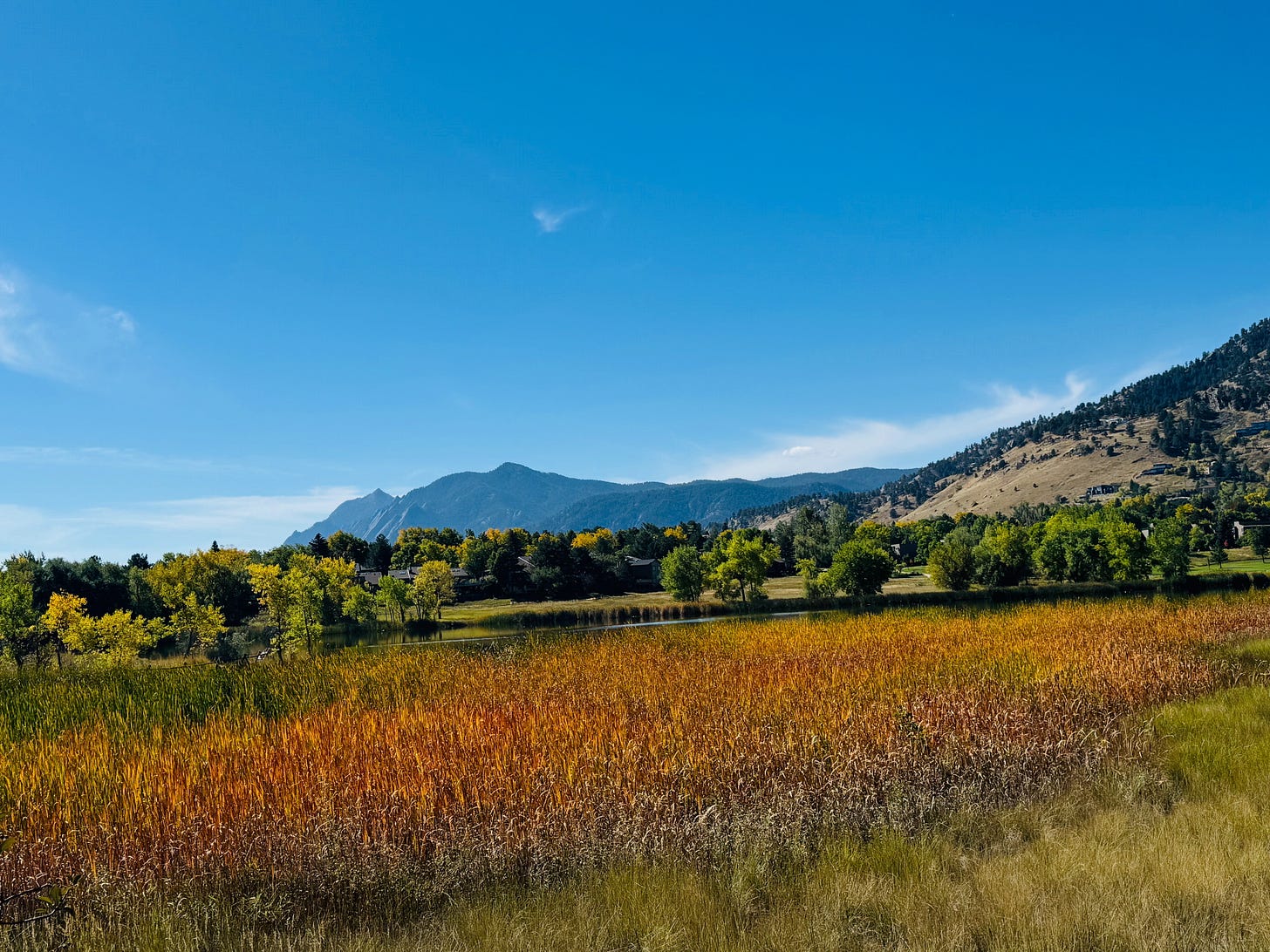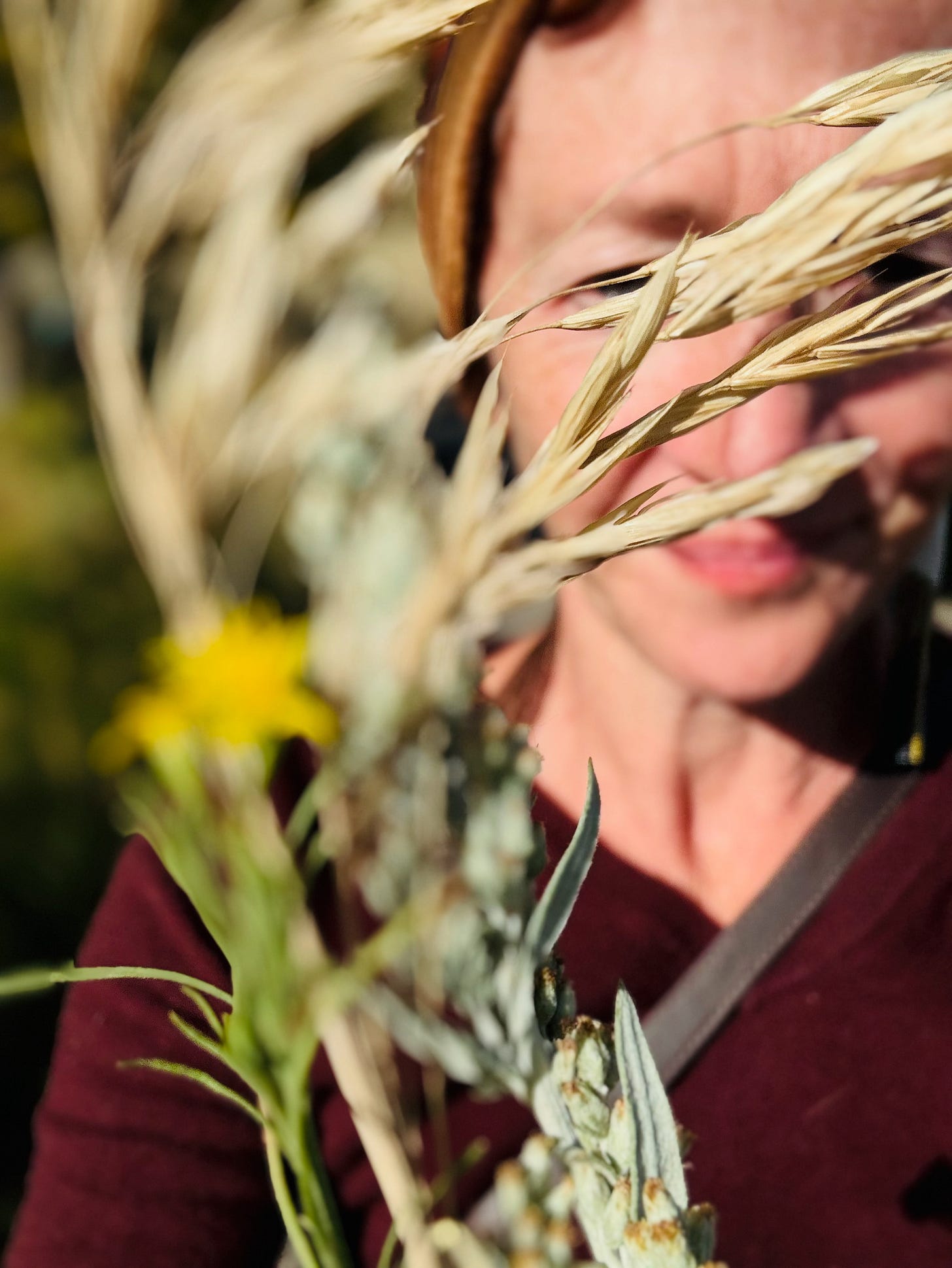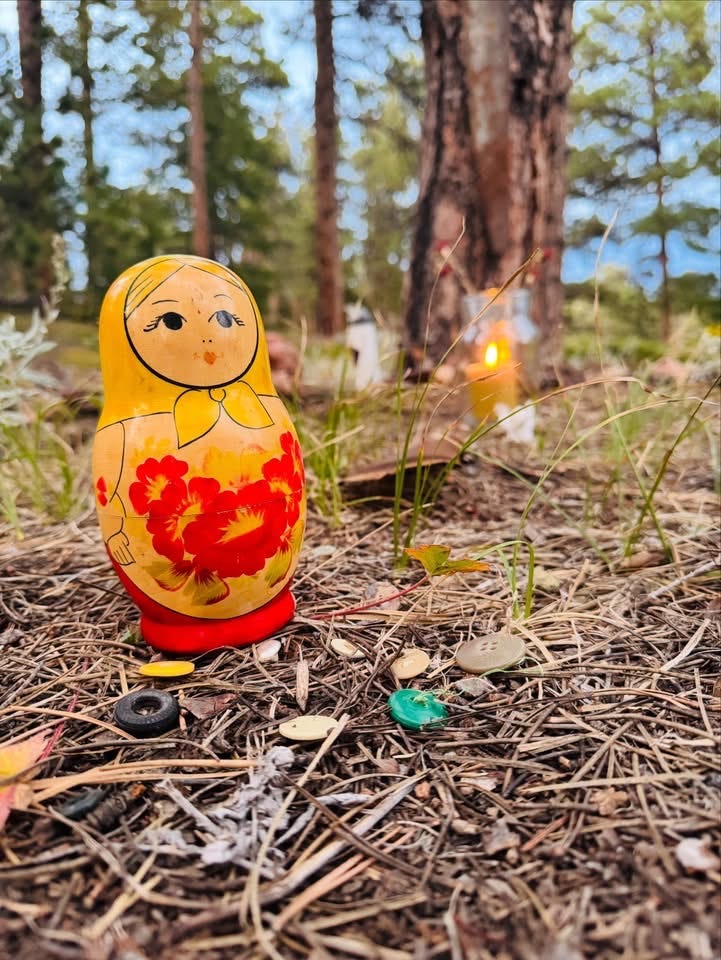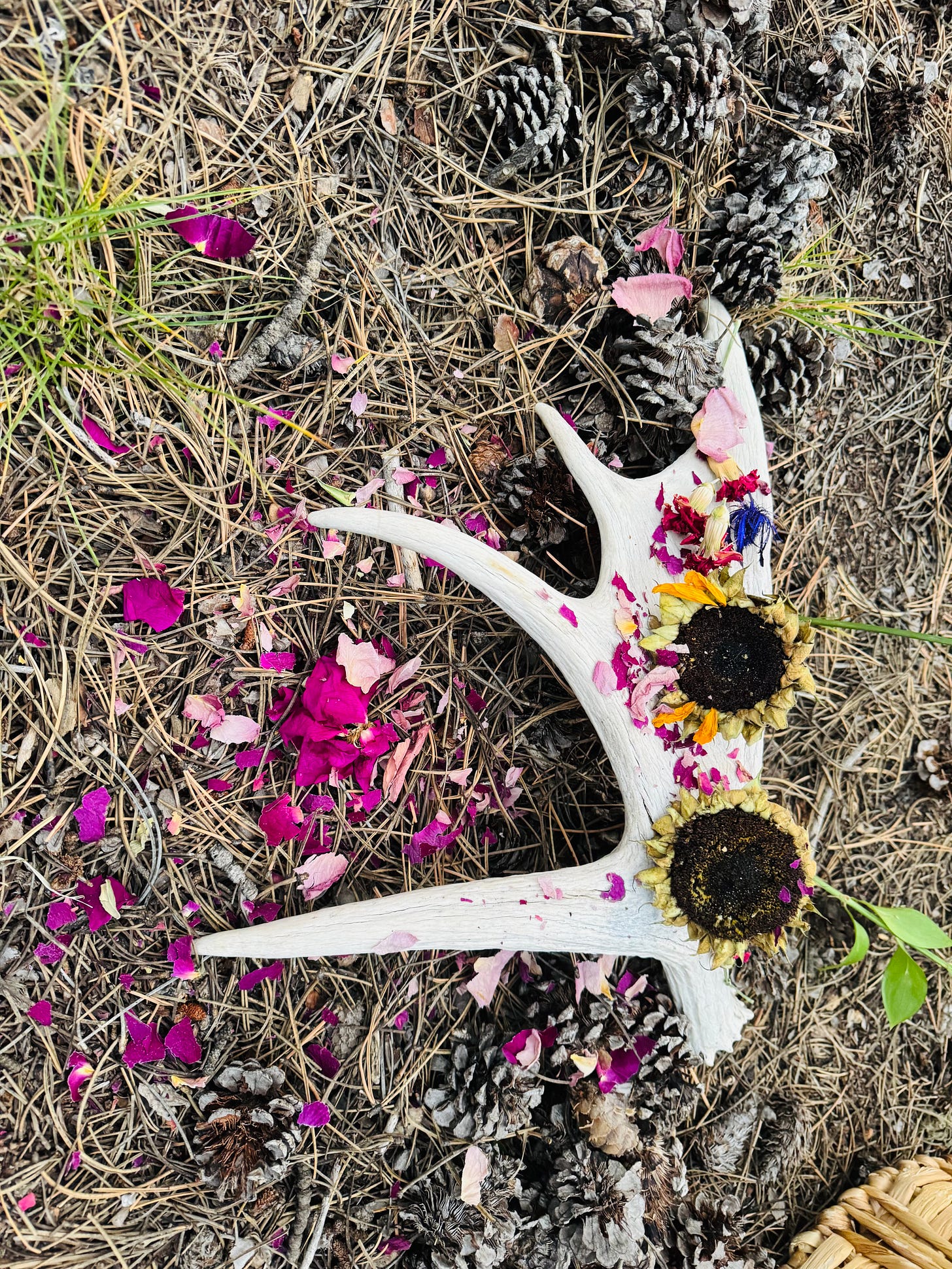The Golden Thread
Becoming the Beholder
The Golden Thread: Becoming the Beholder
Walking round the lake.
Round the lake.
Around the lake.
Noticing.
Noticing.
Noticing.
Gold and red and brown and gold — the season circling itself. The land threading her golden thread into milkweed stalks, aspen shimmer, cottonwood leaves, gumweed flowers. Everywhere I look: gold. Everywhere I look: beauty.
An elder couple stops me. The wife says, You are so beautiful.
And the husband, emphatic: You. Are. Fall.
I carry his words like an acorn in my pocket. What does it mean to embody a season? To carry its gold, its impermanence, its thread of beauty and decay? To become the beholder, and to be beheld?
The Word
Behold
The word behold comes from Old English behealdan: be (to make thorough, to surround) + healdan (to hold, to keep). At its root, it means not just to see, but to hold something in your gaze with care and attention. To keep it, to guard it, to let it matter.
Over time, behold grew into a word of revelation. In the Bible and in early English poetry, it is the word of annunciation: Behold! See! Pay attention! The everyday use faded, and now the word feels almost sacred, reserved for moments of awe.
To behold is to let the world rest in our seeing, to hold it steady in our awareness. And perhaps, to let ourselves be held in return.
When the couple said to me, “You. Are. Fall.” they were beholding me — not as an object, but as a season, as beauty, as embodiment. And in their eyes, I felt myself held.
To become the beholder, then, is to step into this reciprocal act of holding and being held. To let the world be enough in its shimmering milkweed pods and golden cottonwood leaves. To notice. To carry. To keep.
The Practice of Noticing
Poetry disrupts the mind. Poetree. Poetry.
Catch the golden thread and follow it.
Not a yellow brick road — too ephemeral for that.
But a thread, weaving us through change, through loss, through the eye of the needle.
And the eye of the needle becomes the eye of the beholder.
The eye that is you.
This is the practice: to notice. To root into the land’s offerings. To let the milkweed pods and the falling leaves mirror back to us who we are becoming. This is not doomscrolling, not consuming catastrophe, but opening to the grace of the world.
When despair for the world grows in me… I go and lie down where the wood drake rests in his beauty on the water, and the great heron feeds… I rest in the grace of the world, and am free.
— Wendell Berry, The Peace of Wild Things
When the world feels unbearable, the invitation is simple: go outside. Notice. Noticing is prayer. Noticing is presence. Noticing is what rethreads us into belonging.
Seasonal Descent
Every fall, Persephone returns to the below. She had eaten six seeds. She cannot escape the rhythm. Nor can we. Descent is part of the weave.
Autumn is the season that reminds us of impermanence. The leaves do not cling. The pods burst open. The air sharpens. The ground begins to prepare for sleep.
And we are asked: what do we need to let go of? What needs to be composted so that something new can be born?
As Marion Woodman writes:
I am not who I was.
I am becoming who I will be.
The bones know
that we are no longer in control.
The bones know
that the only way forward
is through the dark.
Descent is not punishment. It is initiation. It is the season of bone knowing, of stripping down, of being held in the dark until we can emerge again.
Writing Invitations for Fall
If you’d like to follow the golden thread into your own writing practice this season, here are a few places to begin:
Keep reading with a 7-day free trial
Subscribe to The Wild Remembering 🪆 to keep reading this post and get 7 days of free access to the full post archives.





